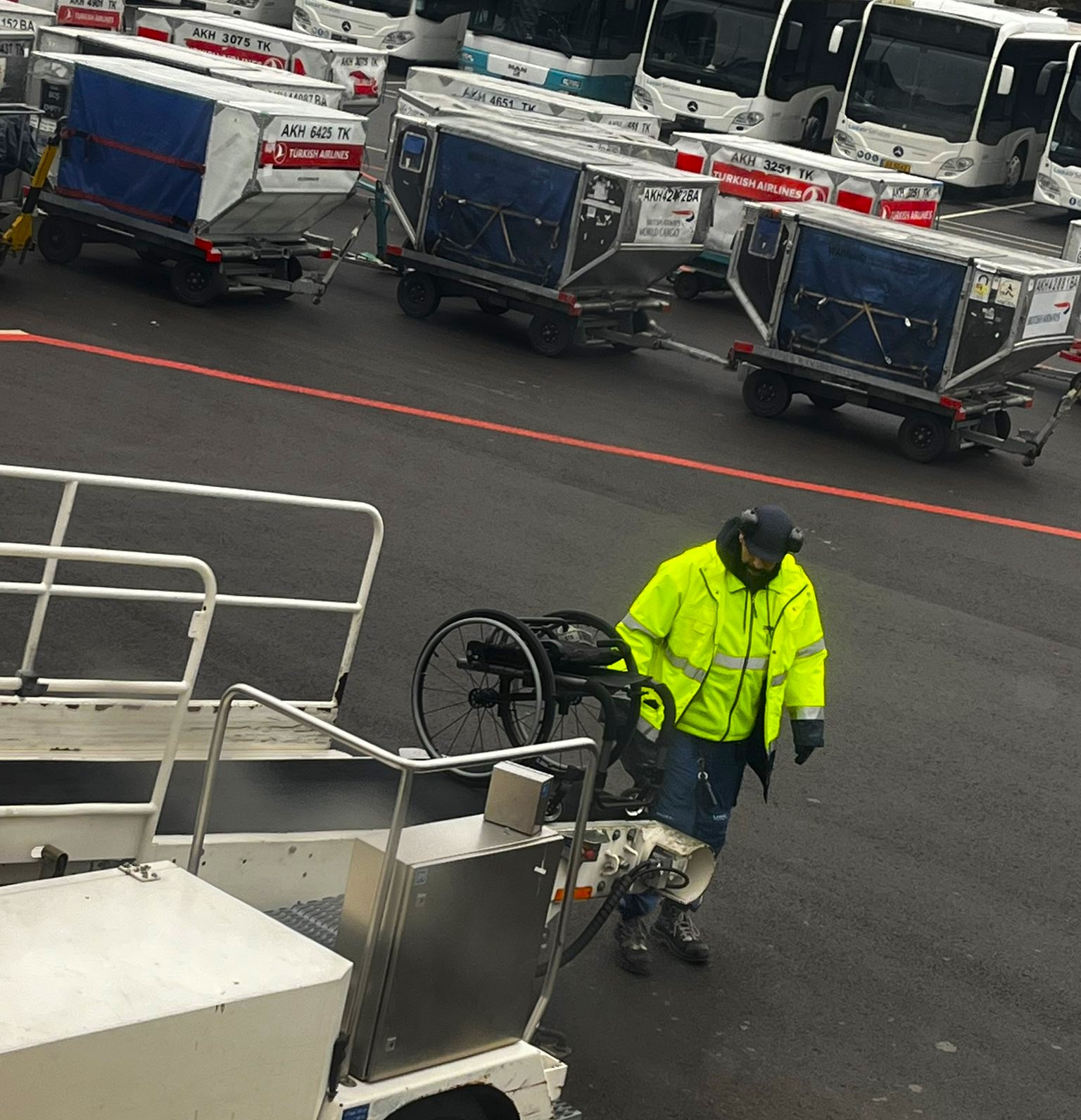


The Department of Transportation (DOT) issued new rules on Monday to protect travelers with disabilities when flying, ensuring airlines protect passengers with wheelchairs, give employees hands-on training, and more.
The new rules will be effective between January 16, 2025, and June 17, 2026, depending on the rule, according to the DOT. The rules come as the DOT estimates at least one wheelchair or scooter is damaged, delayed, or lost for every 100 transported on domestic flights.
Transportation Secretary Pete Buttigieg said in a statement:
“Every passenger deserves safe, dignified travel when they fly — and we’ve taken unprecedented actions to hold airlines accountable when they do not provide fair treatment to passengers with disabilities,”
“With the new protections we’re announcing today, we’re establishing a new standard for air travel — with clear and thorough guidelines for airlines to ensure that passengers using wheelchairs can travel safely and with dignity.”
As per DOT, an estimated 5.5 million Americans use a wheelchair, and many encounter barriers when it comes to air travel. DOT data shows that for every 100 wheelchairs or scooters transported on domestic flights at least one is damaged, delayed, or lost.
With these upcoming rules, carriers must provide “safe” and “dignified” assistance to travelers with disabilities “that does not put them at heightened risk of bodily injury” and “in a manner that respects a passenger’s independence, autonomy, and privacy.”
Carriers must also provide annual training, including hands-on training, to employees who assist passengers with mobility disabilities or handle their wheelchairs or scooters.
In addition, airlines must return any checked wheelchairs or other assistive devices in the condition they were received.
If they are not returned as is, as per DOT, there will be a “presumption that the airline mishandled the passenger’s wheelchair or other assistive device in violation of the Air Carrier Access Act (ACAA).” Airlines will also be required to notify passengers before they deplane when their wheelchairs or scooters have been unloaded.
DOT led by Secretary Buttigieg has made efforts to improve air travel for people with disabilities continuously. Here are few actions in this regard:
In October 2024, DOT issued a landmark $50 million penalty against American Airlines for serious violations of the laws protecting airline passengers with disabilities, including cases of unsafe physical assistance that at times resulted in injuries and undignified treatment of wheelchair users.
In July 2023, DOT finalized a rule to require airline lavatories to be accessible to people with disabilities.
In July 2022, the Department established the first Airline Passengers with Disabilities Bill of Rights to help educate passengers with disabilities about their rights when they travel.
In addition, DOT has laid the groundwork for a possible future rule that would address passengers staying in their own wheelchairs onboard airplanes.
Through the Bipartisan Infrastructure Law’s Airport Terminals Program, DOT has funded over 150 projects to make airport terminals more accessible for people with disabilities.
If a wheelchair or scooter is delayed, airlines must transport it to the passenger’s final destination within 24 hours of their arrival for domestic or short international flights and within 30 hours of their arrival for long international flights lasting more than 12 hours. The DOT also put rules in place for reimbursements and alternative accommodations.
Looking ahead, the DOT will require airlines to improve their standards for on-board wheelchairs. The rule will require all on-board wheelchairs for use on planes with more than 60 seats to meet the new standards by Oct. 2, 2031.
Some carriers, like United Airlines, for example, have made improvements to their travel protocols for passengers with disabilities like launching a new search feature to ensure that wheelchair users will be accommodated.
The efforts to improve the travel experience for passengers with disabilities are here as the DOT is continuously working towards enhancing airline passenger rights, including spelling out airline refund rules, launching a passenger guide to family seating, and publishing the first-ever bill of rights for airline passengers with disabilities.
Here's some of the requirements as per the new rule, those needed to be fulfilled by the airlines next year:
Display Picture Courtesy : Andrew Gomes
